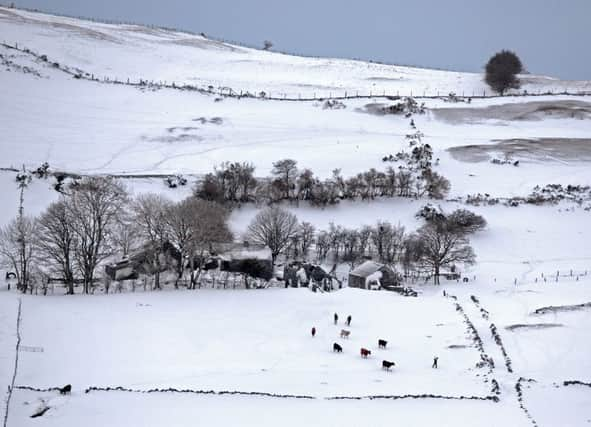Health warning issued as cold snap is on the way


While a frosty morning can be attractive to look at, for some the onset of the cold weather can bring many hazards.
Vulnerable and older people can find it difficult to get out to the shops or to keep their house adequately heated during the cold weather, putting them at risk.
Advertisement
Hide AdAdvertisement
Hide AdThe PHA is encouraging everyone to look out for those who may be more vulnerable during the cold weather and check that they are okay.
The following advice can help you or a neighbour keep warm at home:
• the best way to keep warm is by wearing multiple layers of clothing and to wear a hat and gloves, even indoors if it is cold;
• heat your main living room to around 18-21ºC (64-70ºF) and the rest of the house to at least 16ºC (61ºF);
• heat all the rooms you use in the day;
Advertisement
Hide AdAdvertisement
Hide Ad• if you can’t heat all your rooms, make sure that you keep your living room warm throughout the day;
• It is important to make sure your heating is safe and that your house is properly ventilated, to reduce the risk of carbon monoxide poisoning.
If you have electric setting for your heating:
• set the timer on your heating to come on before you get up and switch off when you go to bed;
• in very cold weather set the heating to come on earlier, rather than turn the thermostat up, so you won’t be cold while you wait for your home to heat up.
If you use an electric blanket:
Advertisement
Hide AdAdvertisement
Hide Ad• check what type it is – some are designed only to warm the bed before you get in and should not be used throughout the night; and
• never use an electric blanket and hot water bottle together as you could electrocute yourself.
You can help keep warm by:
• wearing plenty of thin layers, rather than one thick one;
• putting on a coat, hat, scarf, gloves and warm shoes or boots when you go outside, even if it is just to get coal or go to the bin;
• wearing clothes made of wool, cotton, or fleecy synthetic fibres;
• wearing bed socks and thermal underwear at night.
Advertisement
Hide AdAdvertisement
Hide AdEat well – food is a source of energy which helps to keep your body warm. Try to make sure you have hot meals and drinks regularly throughout the day.
Who to contact if you need further help:
If you are worried about a relative or an older neighbour, contact your local council. There is also help and support from the charity Age NI.
The Age NI website has information on how to stay warm in winter which contains useful contact numbers and advice: www.ageuk.org.uk/northern-ireland
As in previous years, the PHA has been working with partners in local councils and the community and voluntary sector to provide access to Keep Warm packs for those who are most vulnerable.
Advertisement
Hide AdAdvertisement
Hide AdThis year approximately 6,000 packs have been made available which aim to provide particular support to older people, young children and rough sleepers.
Severe weather warnings:
The Met Office’s severe weather warning page provides up-to-date information about weather that is likely to cause disruption:
If you are considering embarking on a journey during bad weather, you should consult the Met Office for travel conditions. If you must drive during severe weather, make sure you are prepared for bad weather conditions.